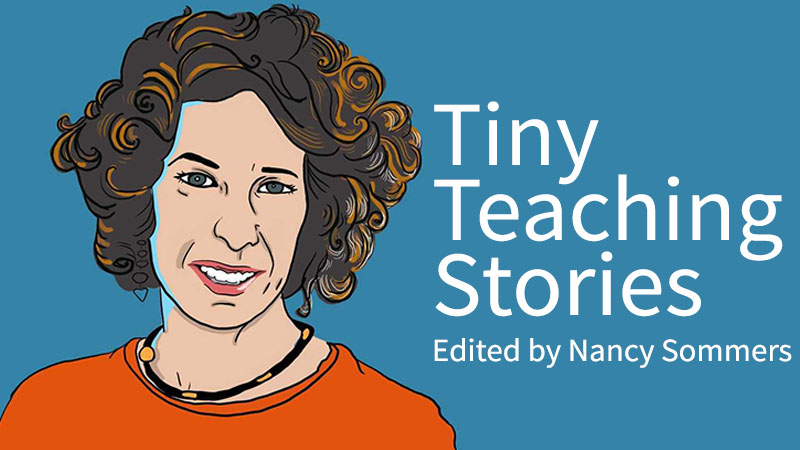-
About
Our Story
back- Our Mission
- Our Leadershio
- Accessibility
- Careers
- Diversity, Equity, Inclusion
- Learning Science
- Sustainability
Our Solutions
back
-
Community
Community
back- Newsroom
- Discussions
- Webinars on Demand
- Digital Community
- The Institute at Macmillan Learning
- English Community
- Psychology Community
- History Community
- Communication Community
- College Success Community
- Economics Community
- Institutional Solutions Community
- Nutrition Community
- Lab Solutions Community
- STEM Community
- Newsroom
- Macmillan Community
- :
- English Community
- :
- Bits Blog
- :
- Bits Blog - Page 4
Bits Blog - Page 4
Options
- Mark all as New
- Mark all as Read
- Float this item to the top
- Subscribe
- Bookmark
- Subscribe to RSS Feed
Bits Blog - Page 4
Showing articles with label Virtual Learning Resources.
Show all articles
Author
05-01-2020
09:35 AM
This blog series is written by Julia Domenicucci, an editor at Macmillan Learning, in conjunction with Mignon Fogarty, better known as Grammar Girl. Grammar Girl podcasts can be smoothly integrated with online classes in endless ways. The last “Teaching with Grammar Girl” blog post, “Using Grammar Girl Podcasts in an Online Classroom,” offered suggestions for podcast-based assignments that pair well with teaching online, and today’s post will expand upon those options! Podcasts have been around for a while, but their popularity seems to increase every day—and for good reason! They are engaging and creative, and they cover every topic imaginable. They are also great for the classroom: you can use them to maintain student engagement, accommodate different learning styles, and introduce multimodality. LaunchPad and Achieve products include collections of assignable, ad-free Grammar Girl podcasts, which you can use to support your lessons. You can assign one (or all!) of these suggested podcasts for students to listen to before class. Each podcast also comes with a complete transcript, which is perfect for students who aren’t audio learners or otherwise prefer to read the content. To learn more about digital products and purchasing options, please visit Macmillan's English catalog or speak with your sales representative. If you are using LaunchPad, refer to the unit “Grammar Girl Podcasts” for instructions on assigning podcasts. You can also find the same information on the support page "Assign Grammar Girl Podcasts." If you are using Achieve, you can find information on assigning Grammar Girl in Achieve on the support page "Add Grammar Girl and shared English content to your course." If your English Achieve product is copyright year 2021 or later, you are able to use a folder of suggested Grammar Girl podcasts in your course; please see “Using Suggested Grammar Girl Podcasts in Achieve for English Products” for more information. Assignment: Using Grammar Girl Podcasts to Support Low-Stakes Writing Find a podcast, article, or other work that ties into current events. For example, you could assign the NPR article “Tips From Someone With Nearly 50 Years Of Social Distancing Experience” by Rae Ellen Bichell (suggested by @tonnawonder in response to Grammar Girl on Twitter). Then, ask students to write a paragraph or two responding to the reading, without worrying about grammar, punctuation, or style. These responses can be submitted privately or discussed in a live meeting. Then, identify the top two or three errors made by students in these pieces, and assign relevant Grammar Girl podcasts for students to listen to before their next writing assignment. Be sure to review “Using Grammar Girl Podcasts in an Online Classroom” for ideas on which podcasts to use! Other Ideas for Teaching Online Recently, Grammar Girl posted across social media to ask teachers a timely but important question: what is working in the sudden move to teaching online? You can read the full responses on Twitter and Facebook. Ideas that have worked for other instructors include: For live meetings, work in systems that students are most familiar with, such as Discord. If you are using Zoom, don’t forget about the breakout rooms option! Find a positive or uplifting podcast, article, or other work for students to respond to. Share a link to a relevant Youtube video or, in a live meeting, share the video on your screen for everyone to watch together. If you record a lesson, upload it to YouTube or your LMS to easily share with students. For even more ideas about teaching online, be sure to explore Macmillan Learning’s webinars about virtual learning. We’d love to hear from you--what has been successful for you when teaching online? Post below or add your reply to Grammar Girl on Twitter or Facebook! Bonus: Grammar Girl has a new request on Twitter this week! What do you do or where are you when you listen to Grammar Girl podcasts? If you don’t regularly listen to Grammar Girl podcasts but do listen to other productions, we’d still love to hear from you! Post your answer in the comments below or head to Twitter with the hashtag #WhereIListen. Credit: Pixabay Image 3412498by kreatikar, used under a Pixaby License
... View more
Labels
-
Composition
-
Virtual Learning Resources
2
0
4,866
Topics
-
Achieve
1 -
Bedford New Scholars
56 -
Composition
584 -
Corequisite Composition
56 -
Developmental English
38 -
Events and Conferences
13 -
Instructor Resources
11 -
Literature
53 -
Professional Resources
7 -
Virtual Learning Resources
46
Popular Posts









